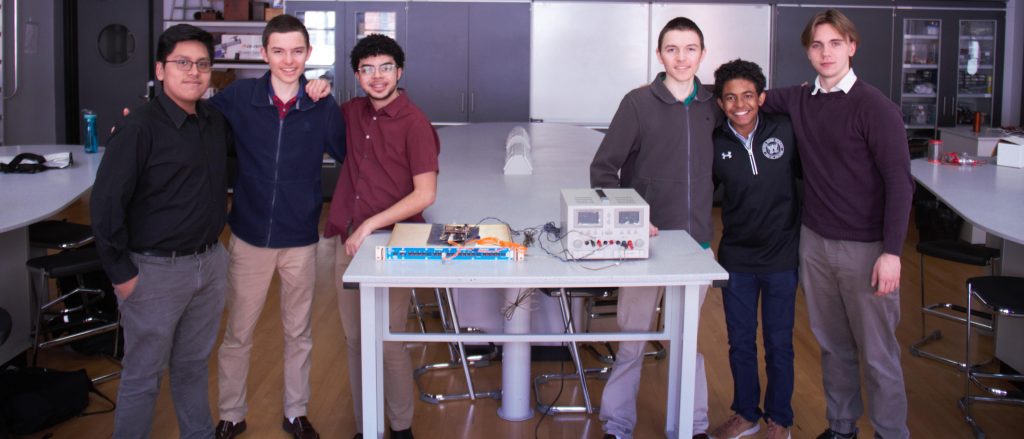Regis Seniors Contribute to Groundbreaking Physics Project
Six Regis seniors this year are participating in a paid internship with Columbia University's branch of the Laser Interferometer Gravitational-Wave Observatory, or LIGO. The project, for which three scientists won the 2017 Nobel Prize for Physics, aims to “listen” to gravitational waves created by the collisions of massive heavenly bodies, such as black holes, by using two-and-a-half-kilometer-long machines called interferometers that measure the bend of light particles fired within them.
Jeremiah Alonzo ‘23, Daniel Jarka ‘23, Antonio Lobaccaro ‘23, Leonardo Lobaccaro ‘23, Raymond Provost ‘23, and Alex Zhindon-Romero ‘23 are tasked with proofreading and testing instruction manuals for precision timing devices that are used in the interferometers.
Under the supervision of Columbia Professor Zsuzsa Márka P’20‘26, one of the head scientists of the university's LIGO branch, and Dr. Luca Matone, a physics teacher at Regis who has worked on the LIGO project for much of his career, these seniors review manuals on how to initialize, calibrate, and operate the timing devices used in LIGO's two interferometers. The timing devices record the movement of light particles traveling within a fraction of a fraction of a second.
The manuals are part of LIGO's effort to use Open Source Hardware, which allows individuals and organizations across fields to collaborate on the development and improvement of science and technology. In the case of the timing devices, the manuals could one day help scientists and engineers use the technology for other research. “The ultimate purpose of advocating for and improving the use of Open Source Hardware is to allow future generations to benefit from the work of today’s scientists and engineers,” says Provost. “As a member of the next generation of engineers, this goal holds significant importance to me.”
LIGO has been a collaborative project since its inception with over 1,000 scientists participating. In 2015, LIGO successfully observed gravitational waves directly for the first time in history. These waves are ripples in the fabric of space and time that Albert Einstein had theorized a century earlier without the technology needed to prove them. It was for this discovery that three of the project's key scientists won the Nobel Prize.
In January, the six Regians brought one of the timing devices back to 84th Street so they could test the manual for concision and clarity within the school building. They'll continue to collaborate on the LIGO project through the end of the academic year.
Read more Regis news
